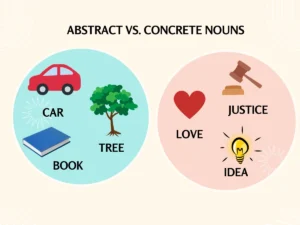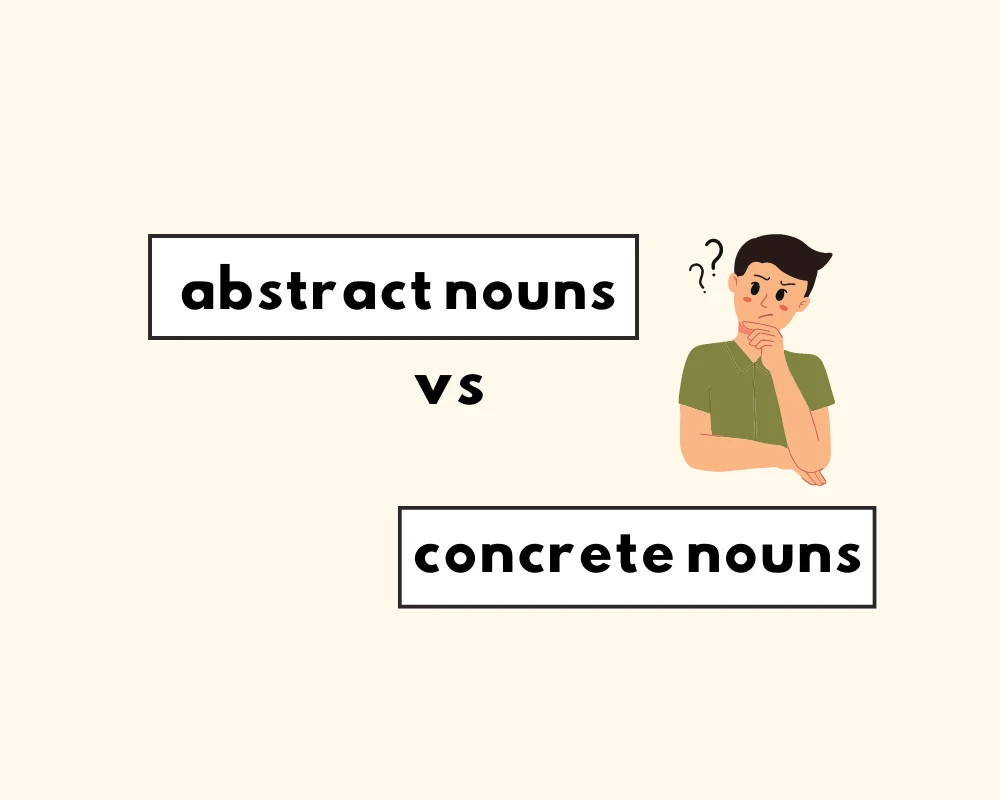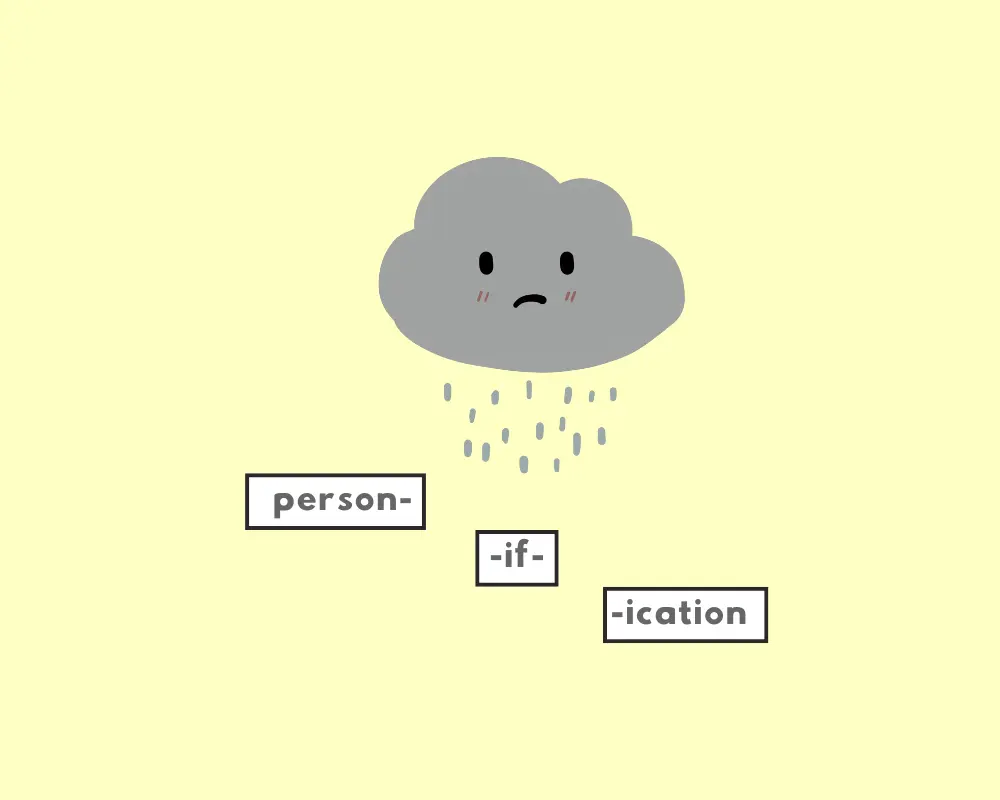
Abstract nouns vs. concrete nouns
As we have learned by now, nouns name all sorts of things, many of which are easily perceivable by our senses.
Books, pens, tables and puppies are all things we can see and feel because they are physical things that (that occupy time and space), which we can count.
- Physical items and objects are concrete nouns in grammar, and most use singular and plural forms.
- Abstract nouns, by contrast, name non-physical things, such as emotions (“sadness”), ideas and concepts (e.g., “democracy”, “justice”), or states we experience (“motherhood”, “childhood”). Abstract nouns stay singular in form.
Because abstract nouns are ideas and emotions that are not perceivable to us by the senses, and exist in an uncountable form, they stay singular.
Which is why ‘you have a lot of knowledge’ is incorrect, whereas ‘you are knowledgeable’ is correct. Likewise, you’d say ‘is there water?’ not ‘are there water?’
Concrete nouns, on the other hand, represent physical objects, places or people, so they use singular and plural noun forms. As follows, for mass/noncount nouns, treat the noun as singular for all other grammatical aspects of the sentence.
Forming abstract nouns
Abstract nouns are formed from adjectives, verbs, and nouns. See the common suffixes tied to the end of the word:
| Root Word + Suffix | Abstract Noun |
|---|---|
| noun + hood | motherhood, adulthood, childhood |
| noun + ship | ownership, relationship, friendship |
| verb + ment | punishment, development, government |
| adj. + ness | dryness, sadness, bitterness, abjectness |
Abstract nouns might end in suffixes:
| Suffix | Examples |
|---|---|
| -y, -ty, or -ity | joy, beauty, responsibility |
| -ion, -tion, -sion, or -ation | collection, destruction, admission, admiration |
| -ence, -cy, or -ice | intelligence, agency, advice |
To distinguish between abstract and concrete nouns, ask yourself if you can physically touch or see it. If not, it’s likely an abstract noun.
Consider the noun’s typical grammatical usage—is it usually singular or does it have both singular and plural forms?
Countable vs. uncountable nouns
Just as traits like kindness and bravery cannot be physically counted, there are certain substances and masses in the world that are also uncountable.Water, oil, sand and gold are substances that exist in mass and are too plentiful to be counted (or simply defy being counted).
Uncountable Nouns, also called Mass Nouns, refer to things in the world such as sand, rice and air that are either too plentiful or exist in a state that cannot be counted. Like most abstract nouns, uncountable or mass nouns stay singular and have no plural noun form. They’re referred to only as a singular noun.
Mass nouns stay singular because they don’t exist in a form that allows them to be counted, but they are not necessarily the same as abstract nouns. Abstract nouns are singular because they are conceptual and nonphysical; whereas mass nouns stay singular because they are not in a form that is impossible to count. See the difference?
Learn more about nouns
| Types of nouns | What’s the plural of …? |
| plural-only nouns | …moose? |
| common nouns vs. proper nouns | …octopus? |
| collective nouns | …cactus? |
| mass nouns | …analysis? |
| possessive nouns | …curriculum? |
| regular and irregular nouns | …crisis? |
Worksheet: Abstract vs. concrete nouns
Nouns that are easily perceivable by our senses are known as:
Why do abstract nouns typically stay singular?
Which of the following is an abstract noun?
Which category does “California” fall under?
Which of these sentences is correct?
You brave.
FAQs
What are concrete nouns?
+
What are abstract nouns?
+
Are abstract nouns singular or plural?
+
Can abstract nouns be counted?
+
How are abstract nouns formed?
+
Sources
-
High School English and Grammar Composition, P.C. Wren.
Yash, D. "How to Use Abstract Nouns vs. Concrete Nouns Explained." Grammarflex, Aug 24, 2025, https://grammarflex.com/abstract-nouns-vs-concrete-nouns/.








